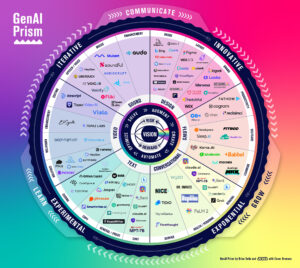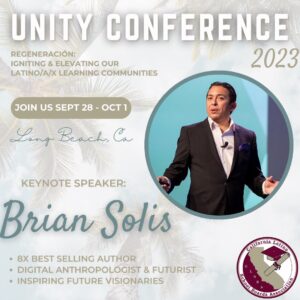
Source: PBCentral
It is not only an interesting question for those who run rampant in the streams of the social web, it’s an intellectual voyage that unravels answers that just may hit home.
According to a Stanford study, multitaskers are “suckers for irrelevancy” according to communication Professor Clifford Nass, one of the researchers whose findings are published in the Aug. 24 edition of the Proceedings of the National Academy of Sciences. “Everything distracts them.”
A group of Stanford researches found, “People who are regularly bombarded with several streams of electronic information do not pay attention, control their memory or switch from one job to another as well as those who prefer to complete one task at a time,”
Fascinating.
Irrelevance?
Maybe…
A new method for learning?
Maybe…
At the very least, we are becoming an increasingly social society. Perhaps with this evolution and transformation we’re concurrently witnessing a greater set of distractions.
I believe many of us are sidetracked by choice.
It’s our willingness and readiness to be distracted, which I think points to something deeper than this particular study is researching.
Part of us longs for distraction. It serves as temporary releave or an opportunity to recharge. The question is, can we snap back with vigor, diligence, and focus to regain and continue momentum?
I can point to countless individuals on Twitter and FriendFeed alone who are defining the infrastructure and associated culture and psychology of the Social Web and are learning as much as they’re consuming and producing.
Perhaps it’s less about multiasking and more about feeling connected, drawn to a sense of community over individual experiences.
Researchers continue to study whether chronic media multitaskers are born with an inability to focus or are damaging their cognitive control by willingly biting off more than they can mentally chew and process.
They’re convinced however, that the minds of these media multitaskers are operating ineffeciently and possibly experiencing intellectual erosion.
“When they’re in situations where there are multiple sources of information coming from the external world or emerging out of memory, they’re not able to filter out what’s not relevant to their current goal,” said Anthony Wagner, an associate professor of psychology. “That failure to filter means they’re slowed down by that irrelevant information.”
Update: Please read Stowe Boyd’s post, “The War On Flow, 2009: Why Studies About Multitasking Are Missing The Point”
Connect with Brian Solis on:
Twitter, FriendFeed, LinkedIn, Tumblr, Plaxo, Plurk, Identi.ca, BackType, Posterous, or Facebook
—
Kindle users, subscribe to PR 2.0 here.
—
New book and Conversation Prism poster now available (click below to purchase):
—
pr pr+2.0 pr2.0 public+relations marketing advertising interactive social+media socialmedia brian+solis social media media2.0 media+2.0 2.0 smo social+media+optimization marcom communication publicity advertising expert interactive spin brand branding guru social+architect






![While AI learns and gets smarter and smarter, I spend my time preparing for the future by… [fill in the blank].
The most important skills of the future are human…
#creativity, #imagination, #individuality, #criticalthinking, #empathy
bit.ly/LifescaleBook 💫
Artist: @asiersanznieto
#promptengineering #prompting #ai #genai #artificialintelligence #keynotespeaker #motivationalspeaker #motivational #motivation #education #learning #leadership #leader](https://briansolis.com/wp-content/plugins/instagram-feed/img/placeholder.png)
Interesting, and while I agree that certain aspects of learning may seem to be impaired by this new world of social interactivity, the social landscape is fulfilling certain needs and is actually driving creativity in new directions. Is the new social networking scene any more detrimental to our childrens ability to learn than cramming them into large high schools, where in many cases less than 50% of the students even graduate? I don’t think so. The bottom line is that they are focused on what they have deemed important to themselves.
I’ll agree that networking (social or other) can promote procrastination and distract from other secular activities, but impairing learning? By that logic, I’m impairing myself by reading and replying to your blog post.
I would suggest that PR hinders learning for all the obvious reasons.
the statement above was a very valid point made. it made me sit back n think about exactly how much of my time daily is being spent on irrelevant topics, television shows, and social networks. i’ve come to the conclusion that i do spend an enormous amount of time on bullsh#% that just isn’t beneficial to my future standings. so im completely done with playing in the pigs pin n im going to give this social network a deathlike rest. ~Tiffany O.
This post was entirely worthless. I can’t believe it. I read it through twice and found nothing of value. And 95% of the comments are just re-post boosts!!
For shame.
I just learned about this from Courtney Engle – via Twitter. So there!
I would have to say the Standford researchers did not study mothers of young children. When my children were preschoolers, I could follow their activities, keep them safe, do laundry, schedule and prepare meals AND read a book all in a typical day without getting off-track or failing to complete priorities.
Indeed Elaine…
As a sociologist, I regularly marvel at study designs that seem to lack nuance and I’ve almost given up on trying to figure our what on earth the researchers were — or weren’t — thinking. Relative to these research findings, I’d love to know if the researcher(s) accounted for differences in learning styles. This N =1, I, am a visual-kinesthetic learner who finds that multi-tasking enhances my ability to concentrate and uplevels my productivity.
There is significant interest and growth in the use of virtual worlds as a method to provide immersive learning experiences and distance learning. They have been proved to be successful in rehabiliting those with mental health issues such as autism and aspergers. If I remember correctly these were conducted through MIT and Arizona State. There are also a number of universities, colleges and community colleges worldwide that are finding learning is enhanced when using a 3-D immersive space. Loyalty College in Canada has proven that exam preparation using Second Life has significantly increased their student’s odds in passing the Customs Agent exam. Many others are finding similar results. I think more study needs to be done before proclaiming all social networking impairs our ability to learn.
Sorry! Typo. Should be Loyalist College in Canada.
Sorry what? I didn’t read much of the article, preferring instead to be distracted by the model in the picture. Is that relevant?
I agree! Does re-posting and re-posting re-posts contribute anything to the public??
It would be wrong to conclude that there is no place for social technologies in learning environments. All the research does is justify the need to have tighter controls on social networking and social media, so that it can be used in a complementary fashion to formal learning rather than be a distraction. The key is to ensure that the social feed of information is relevant and consistent with the goal of the learning.
Social networking has been going on since the invention of the classroom. Technology today is only enabling it to occur virtually where before it used to occur in the classroom. One could argue that learning without social networking is less natural than with social networking. But just like socializing was limited and controlled by instructors in the classroom, it needs to be controlled in today’s virtual environments as well.